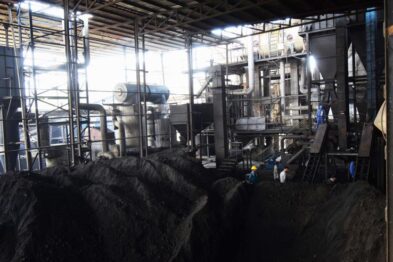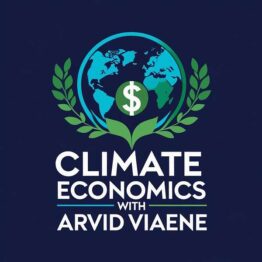EPIC is excited to welcome six exceptional young researchers to our newest cohort of Pre-Doctoral Fellows. Through this program, the fellows will work full-time alongside EPIC faculty conducting energy and environmental economics research. The two-year fellowship allows early-career researchers to gain hands-on experience in preparation for a doctoral program.
Read on to learn more about the Fellows and their research.
 Jennifer Amarachi Agbo
Jennifer Amarachi Agbo
Jennifer Amarachi Agbo is working with the Climate Impact Lab to examine the distributional impacts of climate change across various sectors, including mortality, energy, agriculture, labor, and others. She holds an M.A. in International and Development Economics from Yale University and a B.Sc. in Economics from the University of Nigeria. Prior to Yale, she served as a research assistant through the Management Scholars Academy (MSA) program at Lagos Business School, and also gained professional experience at KPMG Nigeria.
“Being at the Climate Impact Lab, EPIC allows me to bridge rigorous economic analysis with real-world climate and development challenges. Each day presents an opportunity to learn from outstanding academics and scholars and contribute to initiatives that can impact equitable environmental and energy policies.”
 Marine Colon de Franciosi
Marine Colon de Franciosi
Marine Colon de Franciosi is working with Professor Ashwin Rode and other affiliated researchers at the Climate Impact Lab (CIL). She holds a BA in Economics from McGill University and an MSc in Economics for Development from the University of Oxford. Prior to joining CIL, she worked at the World Bank on a range of impact evaluations, including social protection projects in the Sahel that aimed to strengthen household resilience to climate shocks. This experience deepened her interest in pursuing research on the broad impacts of climate change, both market and non-market, and in the role of adaptation in fostering resilience. In her free time, she enjoys reading, running and biking along Lake Michigan, and exploring Chicago.
“Joining EPIC and the Climate Impact Lab is an exciting opportunity to contribute to cutting-edge work on climate change and economic research. The program offers a unique chance to immerse myself in seminars and research projects at the frontier of these fields, while learning directly from faculty and peers. I see this as an opportunity to strengthen my skills and grow as a researcher while contributing to work that can inform policy in meaningful ways.”
 Emily Lightfoot
Emily Lightfoot
Emily Lightfoot works with Michael Greenstone on research projects at the intersection of energy and development, including a randomized control trial on the social norms of payment for electricity in Pakistan. Emily holds a Bachelor of Science degree in Economics and minor in Mathematics from Texas A&M University, graduating summa cum laude. Her honors thesis estimated the effect of hurricane flooding on Texas business activity. Emily is interested in the study of climate economics, spatial economics, as well as law and economics.
“My passion for conducting economic research that can be translated into tangible policy is what drew me to work at EPIC. I have gained so much working alongside professors and peers on projects that aim to find solutions to the pressing issue of climate change and its impact on our communities. Working at the University of Chicago has allowed me to strengthen my technical and professional skills, preparing me for a career in economic research”
 Ema Nakayama
Ema Nakayama
Ema Nakayama received a BA (with honors) in Mathematics and Economics, as well as an MA in Mathematics from Johns Hopkins University. She is working with Professor Michael Greenstone; currently, she is supporting him on a proposal for climate compensation that is based on calculating local climate damages and encouraging emission reductions. For another project, Nakayama is working on analysis for an RCT (randomized control trial) that implemented the first particulate-matter emissions market trading scheme covering industrial plants in Surat, India. Her own research interests lie broadly in the fields of public economics, public policy, and microeconomic theory. In her free time, Nakayama enjoys running, reading, and Chicago’s many great bakeries.
“I am so grateful for the opportunity to learn and work at EPIC. My PI, Professor Michael Greenstone’s research on the Global Energy Challenge is incredibly interesting and meaningful, and I am eager to contribute to his pressing work addressing the need to balance access to energy and reducing the damages of climate change. EPIC has also given me a supportive and inspiring environment in which I hope to grow as a researcher.”
 Tomoki Nishiyama
Tomoki Nishiyama
Tomoki Nishiyama is working with Professor Koichiro Ito. He supports projects on the Chilean electricity market, with a current focus on market integration and the development of renewable energy. Originally from Japan, he earned his B.A. in Economics from the University of Tokyo and completed the first year of its master’s program. His research interests span both theoretical and empirical economics, particularly in the areas of environmental and development economics. He is passionate about understanding complex social phenomena through the lens of economics.
“The EPIC community—including colleagues, professors, staff and alumni—is very friendly, and I enjoy interacting with them both during and outside of work hours. I also find great joy in attending classes and seminars, which broaden my interests every day. Through my research experience at EPIC, I hope to sharpen my research intuition and perspectives in economics, and to build a rigorous intellectual foundation for my future academic career.”
 Maiqi Yu
Maiqi Yu
Maiqi Yu is working with the Climate Impact Lab. She currently supports a project examining the labor market consequences of climate change, exploring how climate shifts reshape employment patterns and worker welfare. Before joining CIL, Maiqi worked as a research assistant at the Center for the Economics of Human Development (CEHD), where she contributed to studies investigating the links between personality traits, economic preferences, and labor market behavior. She holds a Master’s in Social Science with a concentration in Economics from the University of Chicago. Her research interests center on labor and environmental economics.
“I feel incredibly lucky to learn and work at the Climate Impact Lab. The Lab’s supportive and intellectually vibrant environment encourages open discussion—from lunchtime conversations to formal meetings. Witnessing ideas evolve through conversations with peers and professors feels magical. Tackling difficult questions here is deeply enjoyable. It’s definitely a wonderful place to grow into a better researcher.”














